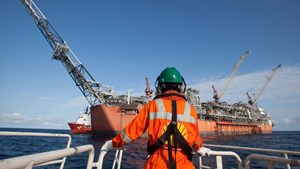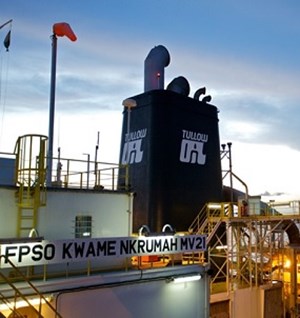Africa Energy Bank gains momentum with capital contributions from Nigeria, Angola and Ghana
In a significant development for Africa's energy sector, Nigeria, Angola and Ghana have fulfilled their capital commitments toward establishing the Africa Energy Bank (AEB). This milestone represents 44% of the minimum required funding from African Petroleum Producers Organization (APPO) members to initiate the bank's operations. Dr. Omar Farouk Ibrahim, Secretary General of APPO, announced this progress during the Congo Energy & Investment Forum last week.
The AEB aims to finance oil and gas projects across the continent, addressing funding challenges posed by traditional Western financial institutions' reluctance to support fossil fuel initiatives due to environmental concerns. APPO has requested each of its 18 member states to contribute $83 million, targeting a total initial capitalization of $5 billion. Beyond Nigeria, Angola and Ghana, five additional member states – Algeria, Benin, the Republic of Congo, Equatorial Guinea and Ivory Coast – have pledged to make their payments, aligning with the bank's goal to commence operations in the first half of 2025.
Nigeria remains sub-Saharan Africa's largest oil producer, offering significant opportunities in the oil and gas sector, including a 2025 bid round. The implementation of the Petroleum Industry Act has introduced regulatory reforms to enhance transparency and attract investment, driving major projects forward. Recent final investment decisions (FIDs) include TotalEnergies’ $550 million Ubeta Gas Field Development and Shell’s $5 billion Bonga North Project, yet additional financing is crucial to advancing Nigeria’s gas agenda and unlocking its full potential in the energy transition.
Angola, meanwhile, is actively diversifying its energy portfolio while advancing major deepwater developments, including TotalEnergies’ $6 billion Kaminho Deepwater Project, Eni’s Agogo Integrated West Hub and a limited public tender, with a long-term goal of increasing production to 2 million bpd. The country plans to make an FID on its first green hydrogen project by 2025 – a 600 MW development led by Sonangol in collaboration with international partners. Additionally, Angola is spearheading its first non-associated gas project, the New Gas Consortium, and undertaking a $12 billion expansion of the Angola LNG plant to enhance its gas monetization efforts.
Ghana is strengthening its position as a leading oil and gas player with new commitments from Eni and Tullow Oil. In March, Eni and the Ghana National Petroleum Corporation signed an agreement to enhance offshore exploration, optimize existing assets and advance untapped reserves. This follows recent regulatory reforms aimed at improving fiscal terms, transparency and investment incentives. Tullow Oil also remains integral to Ghana’s energy sector, with production from the Jubilee and TEN fields supporting economic growth and plans to launch a drilling program in May 2025 to bring new production online.
Amid these developments, the establishment of the AEB is a strategic response to Africa's need for dedicated financial institutions that understand the continent's unique energy landscape. By providing tailored financing solutions, the Bank is poised to accelerate energy project development, enhance energy security and drive economic growth. As more countries contribute their capital shares, the bank is expected to play a pivotal role in unlocking investment, bridging financing gaps and ensuring sustainable energy expansion across Africa.




